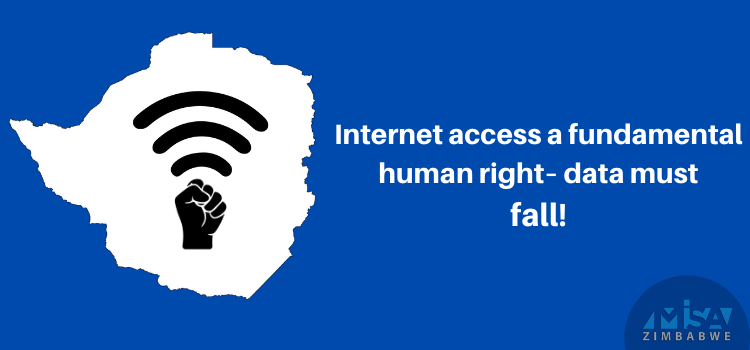The Internet is a key enabler to accessing relevant information on the citizens’ health and wellbeing, which is fundamental to the country’s socio-economic development. The Internet should therefore be accessible by everyone through affordable accessible data fees as opposed to being a privilege for the rich while excluding the generality of the citizens, the vulnerable and marginalised communities.
It is MISA Zimbabwe’s well-considered view that the costs of mobile data in Zimbabwe is prohibitive and discriminates and infringes on citizens’ right to access to information as provided for by the Constitution and the African Declaration on Internet Rights.
The African Declaration on Internet Rights (AfDec) implores African governments to uphold human and people’s rights through an Internet environment that can best meet the continent’s social and economic development needs.
In that regard, the nation’s health and wellbeing and citizens’ right to access to health facilities and relevant information to that effect is a fundamental human right more so in the wake of the COVID-19 outbreak.
Citizens need to keep themselves informed of the developments and measures that are being taken by the Zimbabwean government and other key stakeholders to contain and curb the spread of the coronavirus in the country.
For instance, the majority of the citizens have a right to also access the government’s daily Twitter updates on developments pertaining to COVID-19 in Zimbabwe and the entire world.
Affordable and reasonable fees will allow for increased access to the Internet and enable the majority of citizens to access, share and spread information on COVID-19 which will go a long in assisting the government’s efforts to curb the spread of the virus in the country.
MISA Zimbabwe, therefore, urges the government and the Postal and Telecommunications Regulatory Authority of Zimbabwe (POTRAZ) to revisit and revise downwards the mobile data and Internet fees being charged by the country’s Mobile Network Operators and Telecoms companies in the national interest and resolve to fight COVID-19.
The government should as a matter of urgency come up with data protection frameworks that enable ease and affordable Internet access by the majority of the citizens which is critical to mobilising the greatest numbers in the fight against COVID-19 through inclusive and participatory societies.
#DataMustFallZim
//End









